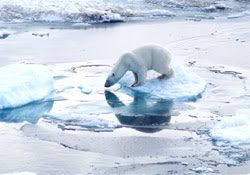On Gough Island
I watch her at night. The small, grey creature with the twitching nose is quite delicate. From my vantage point in bed my house mouse seems docile and innocent. She scurries from room to room on a restless quest for food. Does she know me too, this little scrap of fur and tail?
At the very least she knows I like to eat cookies in bed; knows, too, that I am not a threat. No mousetraps or poisons lurk in unseen places. My house mouse knows who’s in charge here. Life is good.
On Gough Island the mice are fat and happy, too. But these are no ordinary mice. Incidentally, this is no ordinary story.
Gough Island is a remote British Island that you’ll find in the south Atlantic, should you choose to look for it. Home to some of the world’s most important seabird breeding colonies it has been well protected, until now. In what can only be described as a plague, “Supermice” threaten their untouched world.
Once ordinary British house mice, I am sure much like my own, these mice are evolving.
But how did British house mice get onto an island in the south Atlantic? Did they swim? Did some bizarre climacteric event cause these mice to suddenly appear on a far-off Island? No. Supermice arrived on the island the same way you and I would - by ship; probably in the 19th century.
As these first mice huddled and hid in boxes and luggage they surely had no inkling of the aberration they were to become. As their tiny feet made landfall and they hurried off into the nooks and crannies below they must have seemed a timid curiosity for the ship’s captain and crew.
These days there is no need to hide, or run or forage for crumbs on the beach. There is meat for the taking and take it they do. There are no natural predators on Gough Island, the reason for the success of so many of its seabirds. The reason, too, for their apparent demise.
Gough Island mice are now twice the size of their timid ancestors and no longer eat cookie crumbs. Instead they have developed a taste for meat. The meat of baby birds to be exact. Each and every year a million or more albatross, shearwater, and petrel chicks (some of which weigh as much as 20lbs) are eaten…alive. These baby birds have no defense mechanisms in place to deal with an attack of Supermice.
So they simply sit in their comfortable nests, wide-eyed and staring, as mice, four, five, six, eight, gnaw into their soft, warm bodies under cover of night. They don’t even know they are being quietly eaten alive. Eventually they bleed to death or their inner organs, heart, kidneys, liver, lungs are eaten until there is nothing left but a pile of feathers and bones. It takes several days.
Without the observations of ornithologists Richard Cuthbert and Erica Sommer we would not know what we now must accept about the humble house mouse. On an island with no human inhabitants or natural predators the house mouse reigns supreme. So why should we care? What does it mean for you and me?
Gough Island is important. Roughly 99% of the world’s Tristan albatross and Atlantic petrel live on the island. 99%. These birds might not survive the next few decades if these mice are allowed to run rampant. There are about 700 000 mice on the island. 700 000! and just 2000 Tristan albatross pairs remain. The ground-nesting Gough bunting is a small finch found nowhere else in the world. No prizes for figuring that one out.
Is anything being done about it? Money always helps, and it’s pouring in to the Royal Society for the Protection of Birds. More than £60,000 has been awarded by the UK government's Overseas Territories Environment Programme to figure out how to handle the Supermice plague.
I once saw an Atlantic petrel, gliding on the south east wind off the coast of Cape Town. A bird from the southern Atlantic - an extremely rare sighting in South Africa. She was not cute or cuddly, but I, personally, would like the chance to see another one. I hope I get the chance to do so. I hope she gets the chance to come back. We deserve the chance to see her. She deserves the chance to raise her chicks to fly free.
And so I am looking at her now, my house mouse, a little differently.










2 Comments:
i felt bad for poisoning a mouse that lived in my rental. really.. really.. horrible.
but reading this story. i get the creepages.. big time.
it's really super-freaky-frightening to think about. Monster mice! What's next monster....ants, frogs, picture a monster chicken! he
Post a Comment
<< Home